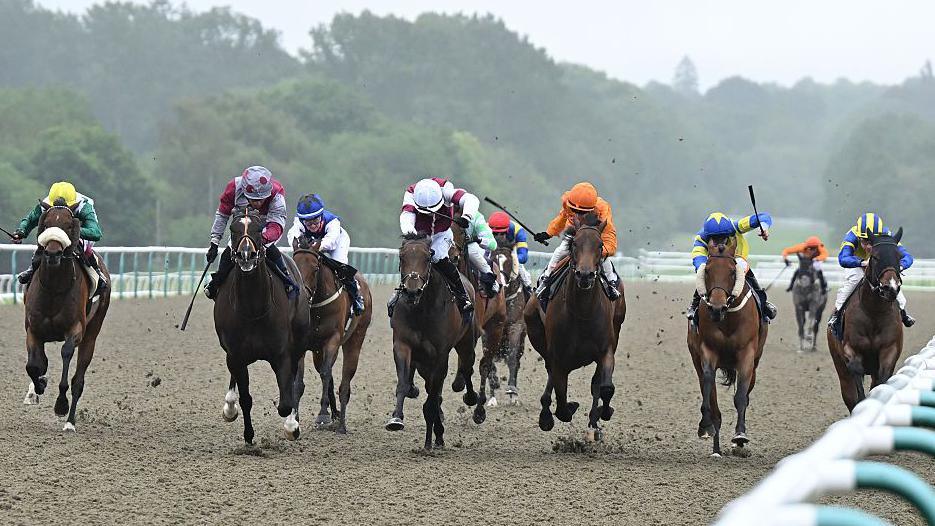On September 10, British horse racing will take an unprecedented step by going on strike in response to the United Kingdom Government’s proposal to increase taxes on betting within the sport. This decision marks the first instance in modern history where the industry has collectively chosen to halt racing activities. The British Horseracing Authority (BHA) is leading this initiative through its broader “Axe The Racing Tax” campaign, signaling serious concerns regarding the proposed tax changes.
This proposed tax reform aims to unify remote gambling taxes, potentially escalating the current 15% tax rate imposed on bookmakers for racing to match the 21% tax that applies to online gaming. Industry experts have voiced strong opposition to this move, claiming it could have catastrophic consequences for the horse racing sector. The BHA’s economic analysis anticipates that such a tax modification could lead to an estimated £330 million loss in revenues, threatening approximately 2,752 jobs within just the first year of implementation. This has serious implications for the sport, which is intertwined with the economy and communities across the UK.
Brant Dunshea, the CEO of the British Horseracing Authority, expressed his concerns regarding the proposed tax changes, stating that they could jeopardize the future of the sport. He highlighted that horse racing traditionally takes place 363 days a year, only being paused in extraordinary circumstances such as severe weather or national emergencies like the Covid-19 pandemic. The strike is strategically planned to occur just before the commencement of the prestigious four-day St Leger festival at Doncaster Racecourse, amplifying its significance.
Dunshea noted that British racing is already in a fragile financial position and reiterated the need for government reconsideration of its tax strategy. He urged that the sport is not just a recreational activity but a key component of the nation’s heritage and economy, rich in cultural significance. Additionally, Jim Mullen, CEO of The Jockey Club, which oversees multiple racecourses, echoed these sentiments, advocating for understanding regarding the economic impact and cultural relevance of horse racing to communities across the UK.
The logistical impact of the strike has led to the realignment of several race fixtures. The events scheduled for Lingfield Park, Carlisle, Uttoxeter, and Kempton Park on the day of the strike have been rearranged as follows: Lingfield Park, now set for the afternoon of September 8; Carlisle for the evening of September 9; Uttoxeter for the evening of September 11; and Kempton Park has two meetings scheduled, with one moved to the evening of September 18. Such adjustments emphasize the operational challenges posed by the protest.
As the government, particularly through the office of Chancellor of the Exchequer Rachel Reeves, prepares for its autumn budget which is expected to include tax rises, the horse racing industry remains alert. The BHA asserts that the sector contributes approximately £4.1 billion to the UK economy and directly sustains around 85,000 jobs.
The ongoing discussion surrounding the approval of the increased gambling tax invites broader reflections on its implications, both economically and culturally. It raises important questions about the prioritization of sectors within the economy and the government’s responsiveness to industries that are part of Britain’s social fabric. As the date of the planned strike approaches, the hope is that it serves as a catalyst for dialogue between the industry leaders and government officials, leading to a conclusion that safeguards the future of racing in Britain, a sport celebrated and cherished by many.












